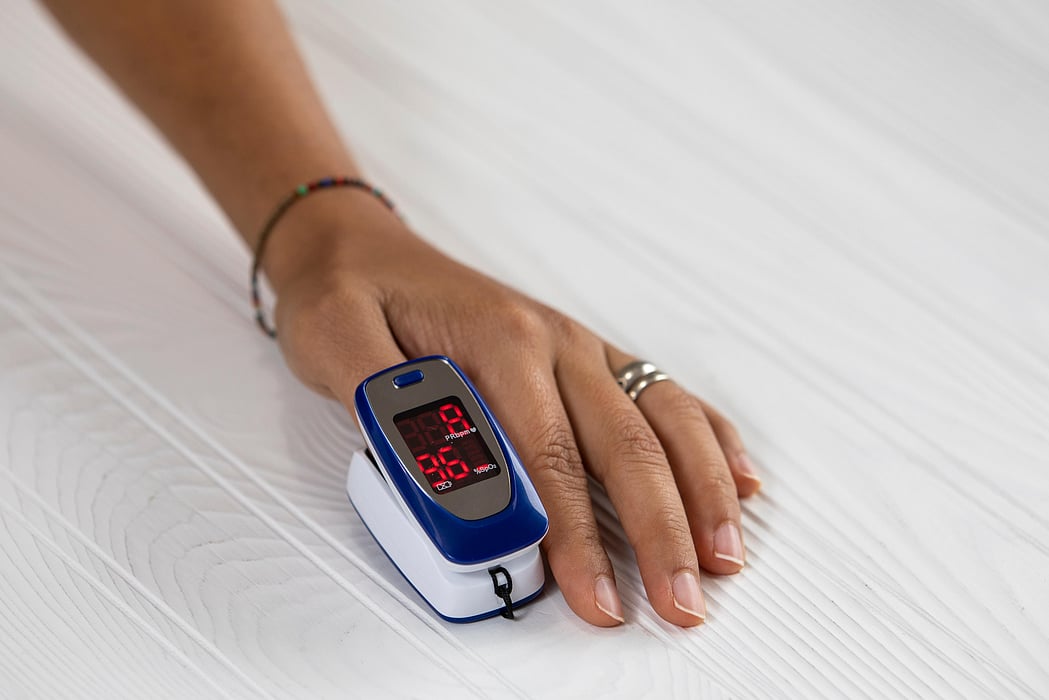Occult Hypoxemia More Likely Among Black Inpatients

MONDAY, July 18, 2022 (HealthDay News) -- Among medical or surgical inpatients in general care, Black patients are more likely to have occult hypoxemia than White patients, according to a study published online July 6 in The BMJ.
Valeria S.M. Valbuena, M.D., from the University of Michigan in Ann Arbor, and colleagues conducted a multicenter study using electronic medical records to examine measurement discrepancies by race between pulse oximetry and arterial oxygen saturation among general care medical and surgical inpatients. The main outcome measure was occult hypoxemia, defined as arterial blood oxygen saturation (SaO2) <88 percent despite a pulse oximetry (SpO2) reading ≥92 percent.
During the study, 30,039 pairs of SpO2-SaO2 readings made within 10 minutes of each other were identified among non-Hispanic White, non-Hispanic Black, and Hispanic or Latino patients (73.0, 21.6, and 5.4 percent, respectively). The researchers found that the unadjusted probabilities of occult hypoxemia were 15.6, 19.6, and 16.2 percent in White, Black, and Hispanic patients, respectively, among SpO2 values ≥92 percent (P < 0.001 for Black versus White; P = 0.53 for Hispanic or Latino versus White in unadjusted models; P < 0.05 in adjusted models).
"On receiving a recent and well correlated pair of SpO2-SaO2 readings, White patients could have some reassurance that a later normal SpO2 reading was unlikely to be associated with a SaO2 reading of <88 percent; however, less reassurance was available for Black patients," the authors write.
Related Posts
Pope Francis Remains Hospitalized With Respiratory Infection
THURSDAY, March 30, 2023 (HealthDay News) -- Pope Francis will remain...
La protección contra la COVID mengua tras dos dosis de la vacuna de Pfizer, según un estudio
JUEVES, 25 de noviembre de 2021 (HealthDay News) -- La protección puede menguar...
What Are the Symptoms of Hepatitis C?
MONDAY, June 12, 2023 (HealthDay News) -- Hepatitis C is often missed in the...
California Files Suit Over ‘Forever Chemicals’ in Water
MONDAY, Nov. 14, 2022 (HealthDay News) -- The state of California is suing...
